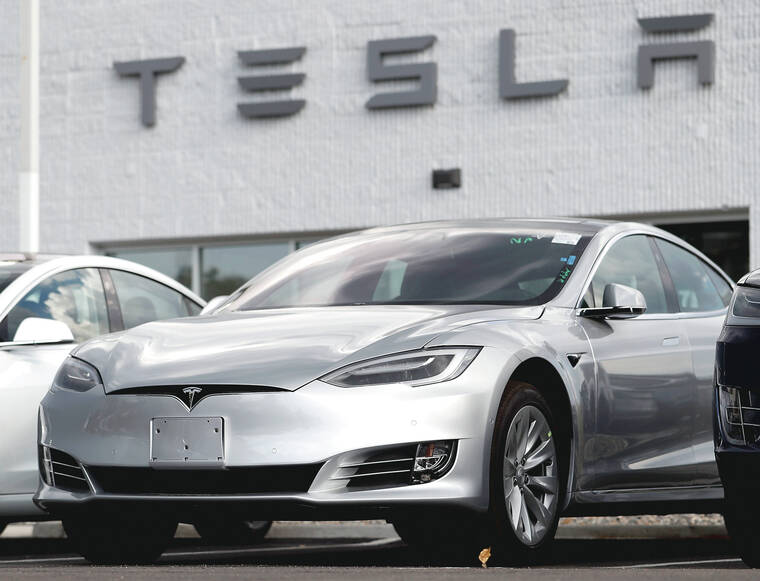The U.S.’s auto-safety regulator is ready to loosen up on standards that could be rendered antiquated by autonomous vehicles, though it’s not prepared to be as radical as Tesla Inc. would like.
The U.S.’s auto-safety regulator is ready to loosen up on standards that could be rendered antiquated by autonomous vehicles, though it’s not prepared to be as radical as Tesla Inc. would like.
The National Highway Traffic Safety Administration released a final rule Thursday that eliminates the need for automated vehicles to have manual driving controls to meet crash standards. The agency updated the standards to clarify what’s required of manufacturers working on vehicles equipped with automated driving systems.
The 155-page rule NHTSA released includes some back-and-forth between the agency and carmakers that offered input on the change in standards. Tesla, which has drawn criticism for blurring the lines of driver-assistance systems and autonomous vehicles, argued the regulator should consider the possibility that vehicles may eventually be operated remotely, such as by mobile phones, tablets or joysticks.
The agency suggested Tesla was getting ahead of itself.
“NHTSA does not agree with Tesla that it is necessary at this time that the definition for manually operated driving controls account for the use of tablets or cell phones to control the vehicle,” the regulator wrote. “The new definition is meant to encompass traditional driving controls, not future controls that have not yet been developed.”
Tesla, which has disbanded its media relations department, did not immediately respond to an emailed request for comment.
The exchange is a fresh indication Tesla and NHTSA may not be seeing eye to eye on autonomy. The agency has opened two investigations since August into possible defects involving Autopilot, the company’s driver-assistance system, and has asked for information about Tesla’s plan to more widely release a beta version of capability the carmaker calls Full Self-Driving, or FSD.
Both Autopilot and FSD require constant monitoring and attention, Tesla told two lawmakers this month who have criticized the company’s marketing of the technology. “This is just more evasion and deflection from Tesla,” Senators Richard Blumenthal and Ed Markey said in a statement this week in response to the company’s letter.




